Dizziness is a common and unsettling sensation that can affect your daily life. It might feel like the room is spinning or you’re about to faint. While occasional dizziness is typically benign, persistent symptoms may indicate an underlying health condition. This article explores seven health issues that are often linked to dizziness and provides insights into their unique characteristics. Understanding these conditions can empower you to seek appropriate medical attention if needed. Read on to discover which health problems might be causing your dizzy spells and learn more about the symptoms associated with each one.
1. Inner Ear Infections
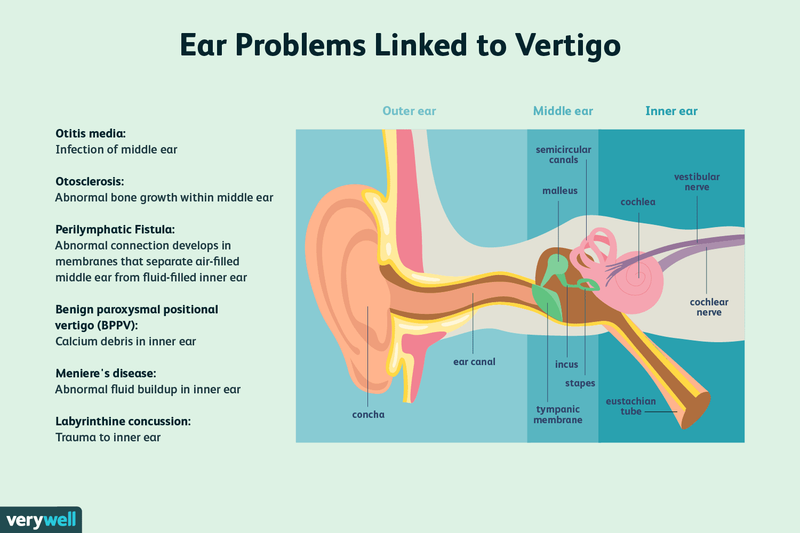
Dizziness often strikes unexpectedly, much like an uninvited guest. Inner ear infections, such as labyrinthitis, can cause whirling sensations and disrupt balance.
Imagine waking up and feeling your world is tilted, making simple tasks challenging. These infections often follow a cold or respiratory illness, affecting the vestibular nerve.
Symptoms may include nausea and hearing changes. While they can be alarming, such infections are usually temporary and treatable with medication. Early diagnosis can ease symptoms and enhance recovery, ensuring you’re back on steady ground swiftly.
2. Migraine-Associated Vertigo

Migraines aren’t just headaches; they can also trigger vertigo, an unsettling blend of dizziness and imbalance. Picture the agony of intense head throbbing paired with a spinning room.
Migraine-associated vertigo often occurs without the classic headache, making it perplexing to diagnose. It affects daily life, disrupting work and leisure.
Identifying triggers like stress or certain foods can help manage symptoms. Treatments combining medication and lifestyle changes offer relief. With the proper guidance, those affected can navigate this condition and regain control over their lives.
3. Benign Paroxysmal Positional Vertigo (BPPV)
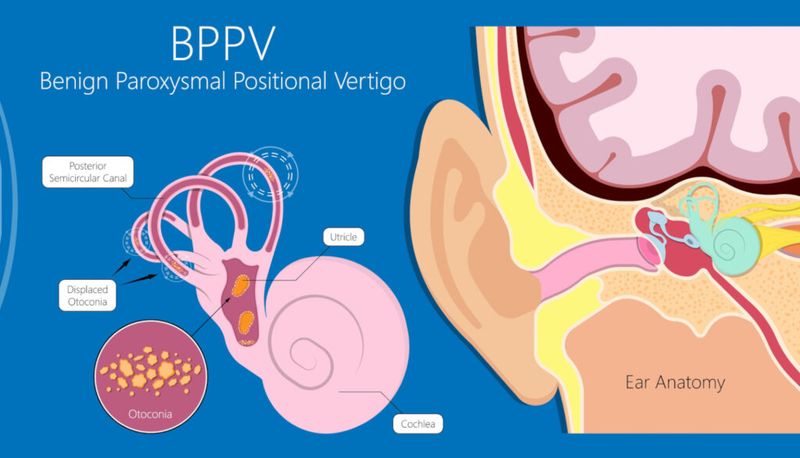
Feeling dizzy when changing positions? BPPV might be to blame. This condition causes brief episodes of vertigo when moving your head.
The sensation can be disconcerting, making activities like getting out of bed feel like an uphill battle. BPPV occurs when tiny calcium particles clump in the inner ear canals.
Despite its alarming nature, it is manageable. Simple maneuvers performed by healthcare providers can reposition these particles. Understanding BPPV helps in reducing anxiety and improving life quality for those affected.
4. Anemia
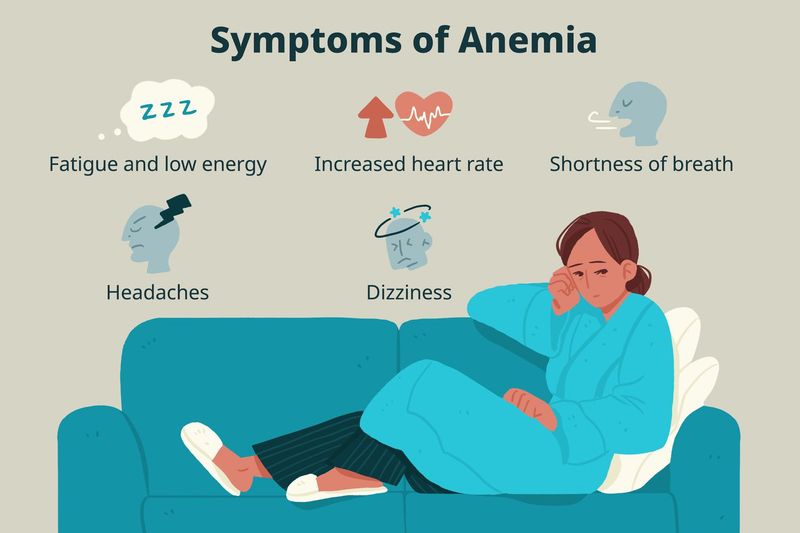
Dizziness can be a subtle hint from your body about anemia, a condition marked by a lack of healthy red blood cells. Imagine constantly feeling drained and breathless.
Anemia leads to reduced oxygen supply to organs, causing fatigue and dizziness. This condition can result from iron deficiency, vitamin deficiency, or chronic disease.
Treatment focuses on dietary adjustments, supplements, and addressing underlying causes. With proper management, individuals can reclaim their energy and vitality, leaving dizziness behind as a distant memory.
5. Orthostatic Hypotension

Ever felt lightheaded when standing up too fast? Orthostatic hypotension might be at play.
This condition involves a sudden drop in blood pressure upon rising, leading to dizziness. It can result from dehydration, prolonged bed rest, or certain medications.
Understanding this helps in managing symptoms, like ensuring gradual position changes and staying hydrated. Awareness and lifestyle modifications can significantly reduce occurrences, allowing individuals to stand tall without fear of imbalance.
6. Meniere’s Disease
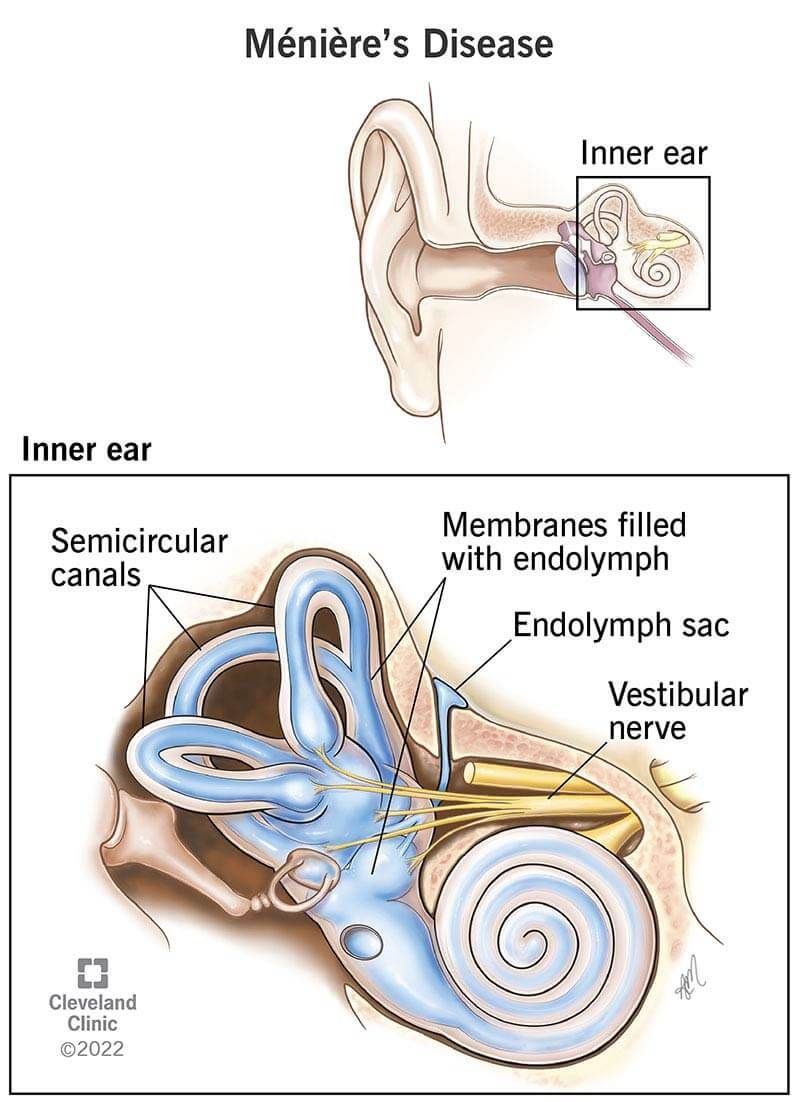
Meniere’s disease is a mysterious ailment, often baffling those it affects. It leads to unexpected episodes of vertigo, along with tinnitus and hearing loss.
Picture trying to concentrate on a conversation, only to be interrupted by a sudden dizzy spell. Though the cause remains unclear, it involves fluid buildup in the inner ear.
Treatment aims at symptom management, including dietary changes and medications. Understanding Meniere’s can alleviate anxiety, offering a path to a balanced and fulfilling life despite challenges.
7. Anxiety Disorders
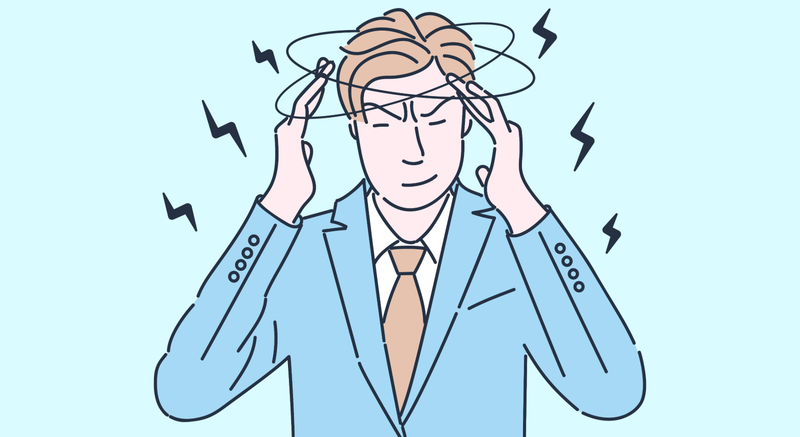
Anxiety isn’t just a mental struggle; it can manifest physically, causing dizziness. Imagine your heart racing and feeling unsteady as fear looms.
This connection between mind and body highlights how deeply intertwined health is. Dizziness can result from anxiety-induced hyperventilation or panic attacks.
Recognizing the link allows for targeted approaches, such as therapy and relaxation techniques, to manage symptoms. Empowering individuals with knowledge fosters resilience, helping them find calmness amidst uncertainty.

